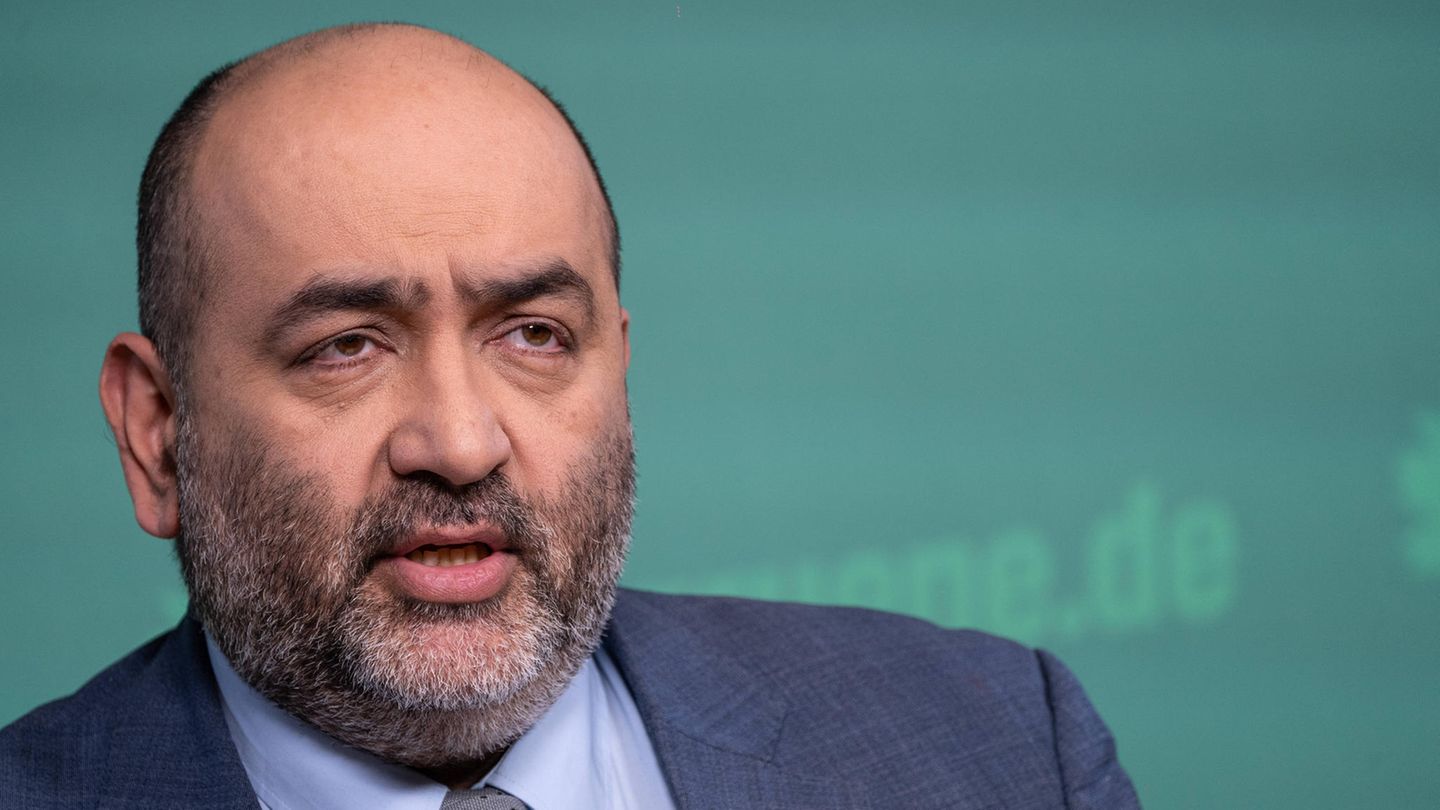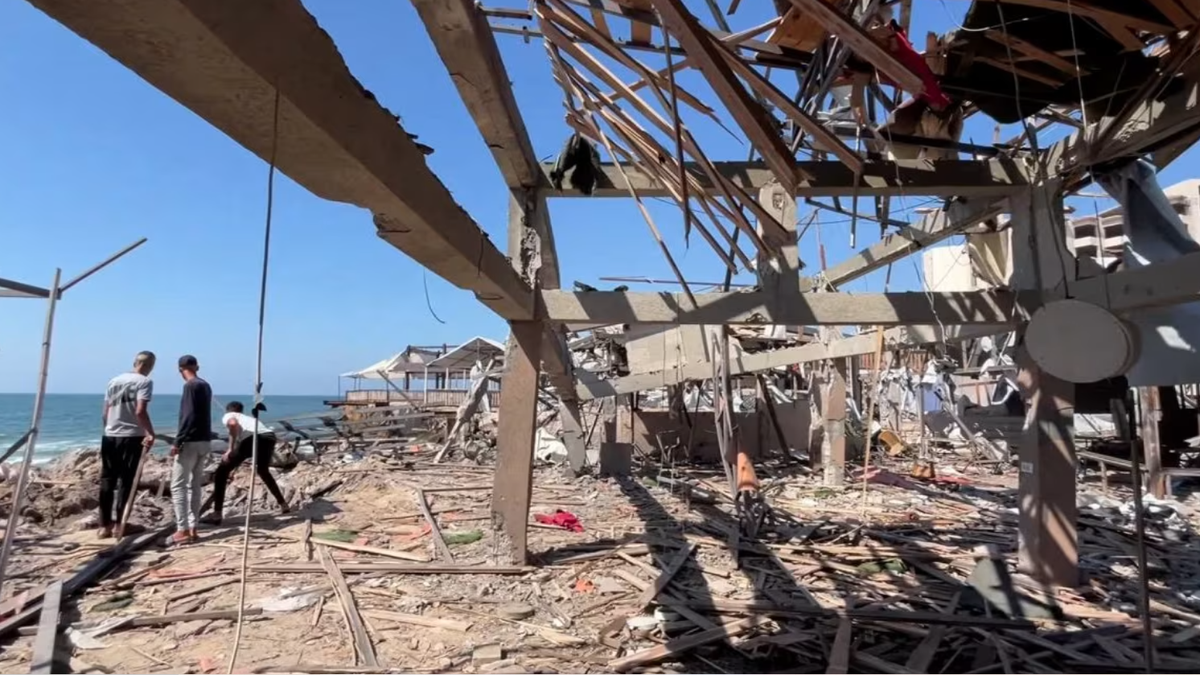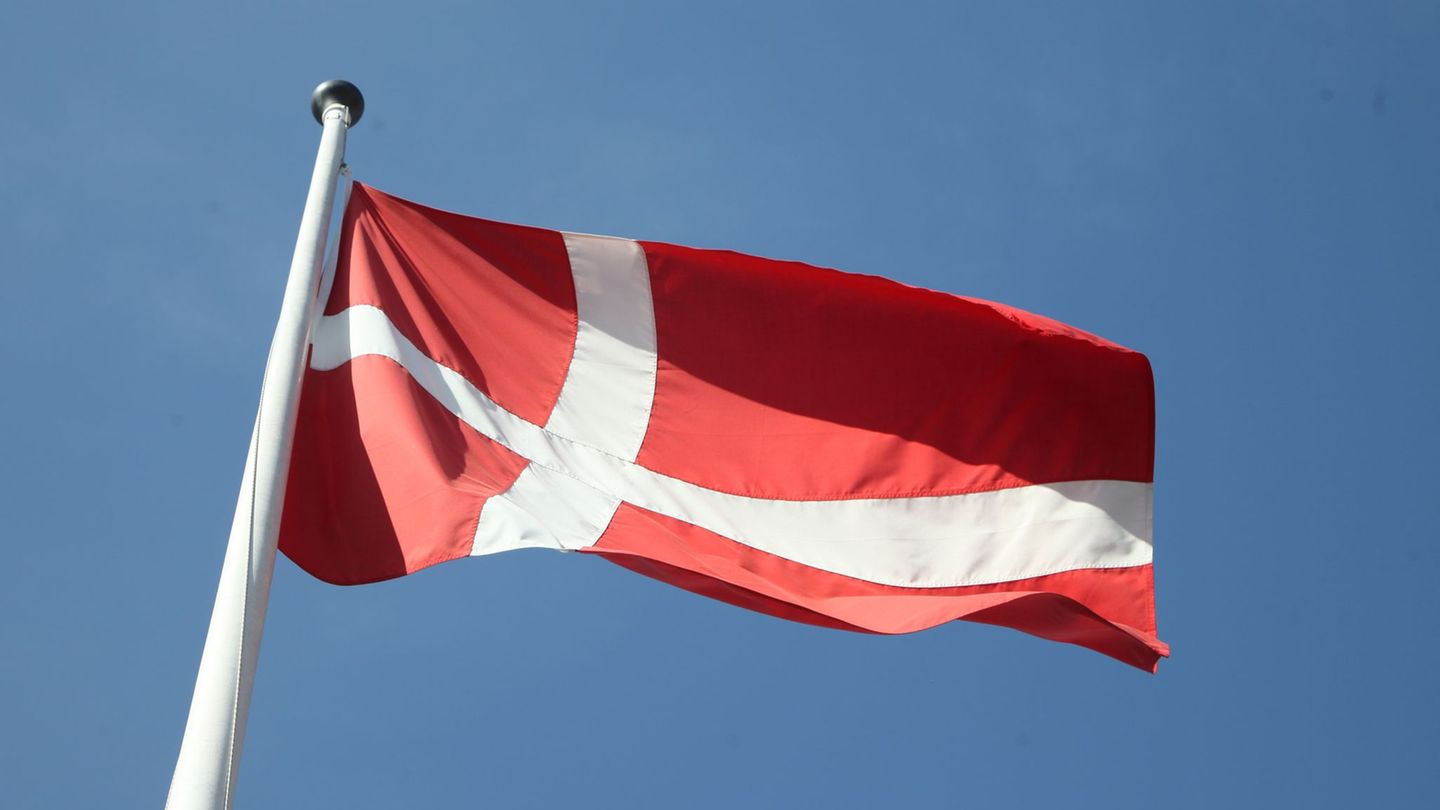Lock everyone up and deport them? What can we do about Islamist violent criminals? Green co-chairman Omid Nouripour warns in star before an under-complex debate.
“Serious criminals and terrorist threats have no place here,” said Chancellor Olaf Scholz in a government statement with regard to the Mannheim attack. “Such criminals should be deported – even if they are from Syria or Afghanistan Why are the Greens so opposed to this?
That is not true. The legal situation is clear: once a certain sentence has been passed, the right to protection in Germany expires. Anyone who commits serious crimes should be imprisoned – and deported immediately after serving their sentence. This is undoubtedly the case in the case of the barbaric murder in Mannheim. The Interior Minister has been examining deportations to Afghanistan for some time now, but so far there has been no result. Key questions regarding the rule of law, security and feasibility have not been clarified. The Interior Ministry must now provide answers to these.
That will be difficult. Afghanistan is ruled by the Taliban, who are not officially recognized as a government.
Correct. That is why we need answers as to how we can ensure that we do not give money to the Stone Age Islamists of the Taliban or release criminals who could then become dangerous for Germany again. And just in the hypothetical case that the Taliban were recognized: If we want to fight Islamism, we cannot give Islamists such a gigantic international success. I find the suggestion of simply dropping people off at the border even more adventurous. They would be back in Germany after a few months. As I said, the Interior Minister has announced that she will look into such deportations. I am excited to see the result.
The Union accuses you of making up arguments. They have long been using “technical possibilities” to Taliban to speak. Do you simply not want to deport them?
Nonsense. Contacts on a purely technical level are not sufficient for repatriations. This would require real cooperation, even for practical steps such as the recognition of citizenship. In the case of the Taliban terror regime, this would mean less, not more, security for Germany. It is frightening how quickly the Union has forgotten the complex reality of government action.
© IMAGO/Bernd Elmenthaler
To person
At the age of 13, Omid Nouripour fled from Tehran to Frankfurt am Main with his parents to escape the mullah regime. He has been a member of the Bundestag since 2006, and since 2021 even as a directly elected representative of his hometown in Hesse. He has shared the party chairmanship of Alliance 90/The Greens with Ricarda Lang for two years. In 2017, Nouripour published a book entitled “What to do against jihadists? How we can defeat terror.”
Does this also apply to the demand that the Foreign Office should adjust its situation report for Afghanistan because deportations would then be possible?
People should not be fooled into believing that there are simple solutions on a large scale. Situation reports from the Foreign Office describe the situation in each country and are taken into account in decisions made by the authorities and in court, i.e. whether an asylum application is accepted or rejected. The question of enforcing a real deportation is far more complicated than a written report. And despite the need for severity, we must not lose sight of the question of how we can prevent people from becoming radicalized, as was the case with the perpetrator in Mannheim.
Can’t you have both?
Both have to be possible. But it is too easy to say: out of sight, out of mind. We are talking about someone who came to Germany at the age of 14, who, according to what we know so far, apparently behaved inconspicuously for years and may have been radicalized at short notice. We do not yet know for sure whether he was a lone perpetrator, a so-called “lone wolf”, who are always the hardest to identify, or whether there is a support network. In any case, the question of deportations does not release us from the obligation to dismantle the radicalization structures in our country.
So what exactly needs to be done?
A lot, at all levels. First of all, there needs to be repression by the security authorities. They need to work smoothly – from the police to the judiciary, and of course at the European level. There needs to be enough staff. And at the intelligence level, there needs to be systematic exchange within the European Union, which has not been consistent enough so far. We are therefore calling for the establishment of a European intelligence agency to coordinate precisely this.
And the second?
As a society, we need to take a closer look. We need to make it much more difficult for radical structures to attract young people.
What do you mean?
Many young people are searching for identity, want to practice their religion, but often have few alternatives to the backyard mosque, where sometimes shady people teach them shady things, where radical ideas can easily spread. That is exactly where we need to start.
What’s new about it?
Of course, this is nothing new. But is it happening enough? There is still no comprehensive offer of Islamic instruction in German on the basis of the Basic Law. This is the task that the Islam Conference, which has existed since 2006, has set itself. The fact that nothing is happening is a disgrace for all of us. If Tehran finances propaganda materials for Koran classes, that is a problem. Imagine if the AfD were responsible for history lessons from 1933 to 1945.
Why is there still no German Islamic education? Because education is a state matter?
The Islam Conference, which includes the federal government, states and municipalities, should have a hinge function. Unfortunately, we have to admit that the Islam Conference has not done justice to its task. There are a few pilot projects, for example in North Rhine-Westphalia or Hesse, which I think is a little little for 18 years of work.
There is always controversy about the Islamic Center in Hamburg. Why isn’t it closed?
This center is the Islamic espionage nest of the Iranian regime. It must be closed. As far as I know, the authorities have done their job. If you have any other questions, please contact the Federal Minister of the Interior.
Has the traffic light coalition so far avoided the issue of Islamism?
No. My group recently held a hearing on the subject. I myself have been dealing with the issue for years. We can see that things are simmering and that the scene has been growing rapidly since the start of the Gaza war. Islamists are using the conflict to win over people who are horrified by the suffering of the people.
Her party colleague, Baden-Württemberg’s Green Finance Minister Danyal Bayaz, wrote on X: It is “high time for an honest debate about the dangers of Islamism”.
That’s right. He also said: You can’t find solutions with blinkers on. That means admitting that you need both: good prevention and deradicalization work and the severity of the law.
Who is wearing the blinders? One might think that Bayaz was also addressing this to his own party.
That’s not how I understood it, but rather as an appeal to all of us. We must stop pointing fingers at each other and tackle the challenges. That also means not making things too easy for ourselves. Politicians should not rest on their laurels and make the toughest demands possible, but find solutions. I would like everyone to have a little more courage to deal with complexity.
Many perpetrators become radicalized online. This could also have played a role in the case of the perpetrator in Mannheim. Can this be prevented?
The platforms have a responsibility. The European Digital Services Act now provides an instrument to demand this responsibility. The companies must stop the spread of hate speech and fake news much more quickly and consistently. But it is not enough to blame everything on the platforms. Radical content resonates particularly well with people when their basic trust has already been shaken. Maintaining or regaining that trust is a task for all of us.
Could the Democracy Promotion Act help?
That would certainly be helpful. It should regulate how we can better fund the organizations that fight against all kinds of extremism. For example, associations that set up programs to help Islamists leave the group – including online. Young people in schools are not primarily reached by the security forces, but by the right approach on social media.
But it is blocked in the Bundestag. Some assume that it will not happen this legislative period. The FDP is blocking it.
There are still a few details to be clarified within the coalition. But it is a good and correct law. And certainly a significant contribution to making progress in combating all types of extremism – including Islamism.
Source: Stern
I have been working in the news industry for over 6 years, first as a reporter and now as an editor. I have covered politics extensively, and my work has appeared in major newspapers and online news outlets around the world. In addition to my writing, I also contribute regularly to 24 Hours World.




